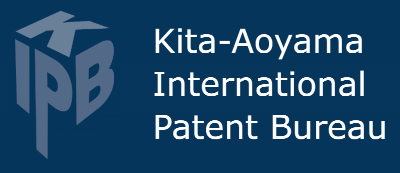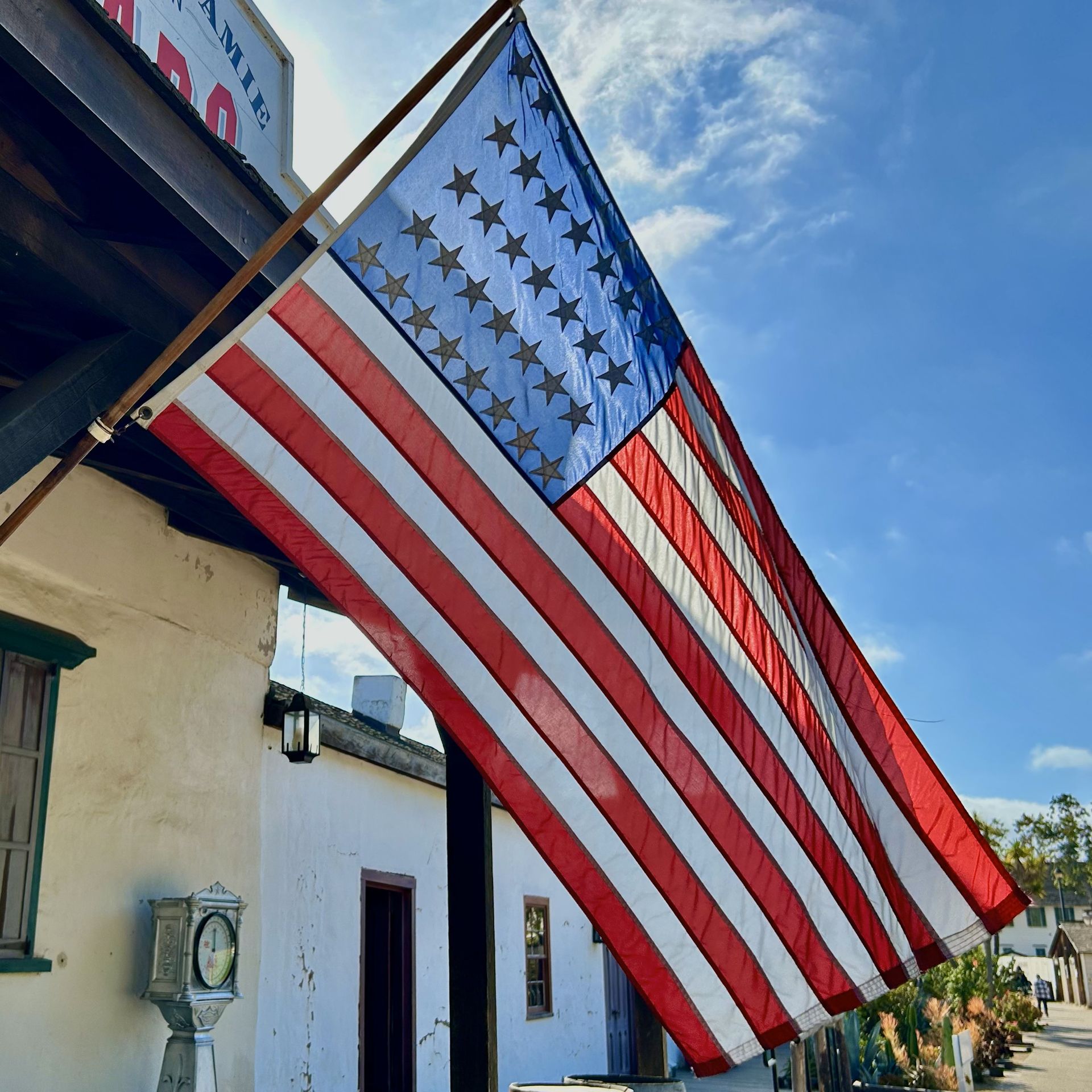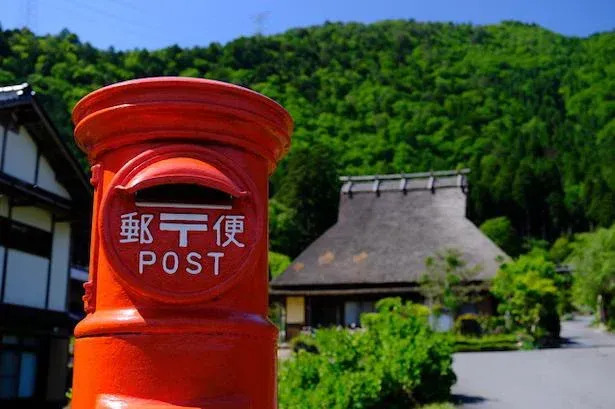The JPO publishes IP Status Report for 2022
The JPO recently published its latest IP Status Report – an annual compilation of intellectual property statistics and JPO policy outcomes from the previous year. The report presents useful information on IP trends in Japan and globally in easy-to-read graphical format, thus providing a handy reference tool for IP practitioners worldwide.
The report can be downloaded from the JPO’s website in Japanese or English.
Click on the button below for the English version.
The 2022 report highlights the JPO’s implementation of initiatives in order to maintain its record of providing “the world’s fastest and highest quality examinations” in the context of the new, post-COVID 19 era. This has involved permanently shifting more JPO activities online and the wholesale digitizing of IP operations.
KIPB Japan and our overseas clients have already felt the practical benefits of these moves in our day-to-day prosecution work. For instance, the JPO has eliminated the requirement for various procedural documents to be hand-sealed or signed - which has always been an onerous, time-consuming task for clients based abroad. The JPO has also broadened the scope and availability of online interviews, introduced a collaborative remote examination system amongst examiners and promoted oral court proceedings online.
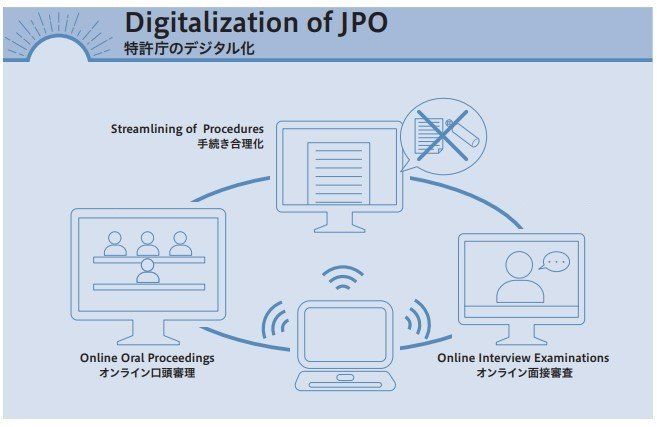
The JPO Status Report 2022 also discusses recent measures that have strengthened industrial property protections for the very latest AI technologies. The JPO has also been canny in leveraging these cutting-edge technologies to improve the quality of the JPO’s examinations and operations still further.
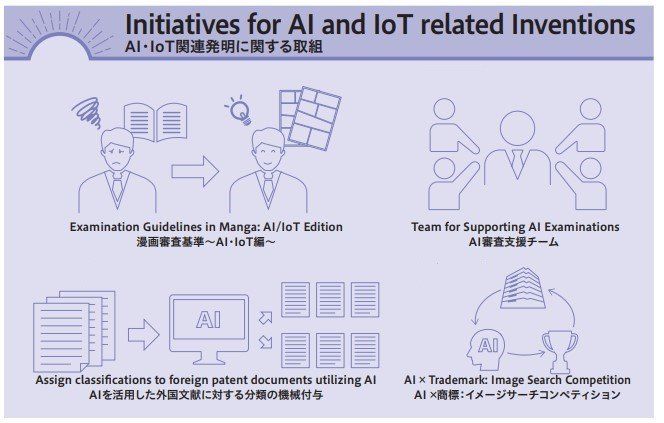
In terms of actual statistics published in the report, we provide a few choice cuts below.
Small rise in number of patent applications
- Whilst there was only a slight up-tick in the number of patent applications in Japan in 2021 over the previous year (to 289,200 from 288,472), the number of international patent applications designating Japan under the Patent Cooperation Treaty (PCT) continued to rise steadily (3-4% per year over the last 10 years).*
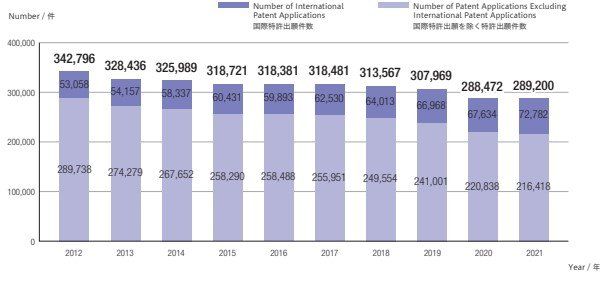
Top foreign companies
- The top foreign company in terms of patent registrations in 2021 was
LG Chem Ltd, the South Korean chemical conglomerate. They were followed at No. 2 by
Huawei Technologies, the Chinese telecommunications giant. In third place was
the Dutch electronics multinational Royal Phillips.
QUALCOMM was the highest ranked US corporation, followed by
General Electric in fifth place.
Boeing and
3M also made it into the Top 10.
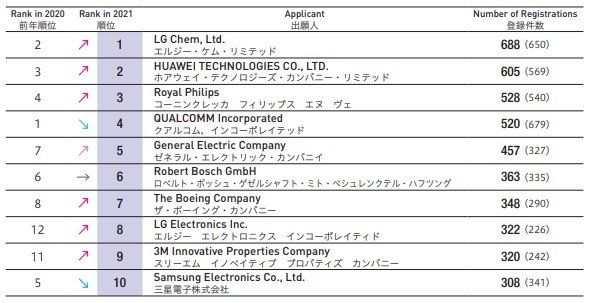
K-pop and trademarks on the rise
- The number of trademark registrations in Japan in 2021 rose markedly from the previous year (174,098 from 135,313). More remarkable is the foreign company with the most trademark registrations in 2021 - Korean K-pop entertainment group SM Entertainment Limited. In 2020, they ranked 31 with only 26 registrations, but increased their presence 7-fold in 2021. Who can blame them for wanting to protect their cash-cow as the K-pop phenomenon continues to spread worldwide?
- Pfizer, Amazon, Johnson & Johnson and Phillip Morris all make the top 10 for American companies.
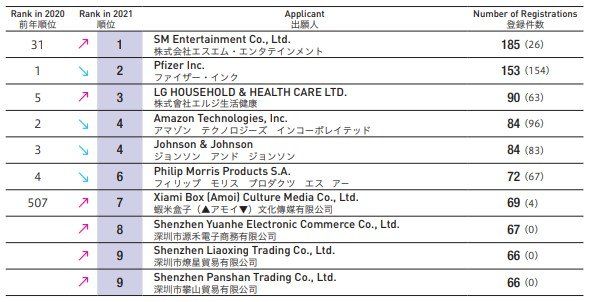
Over three quarters of cases granted at appeal
- The rate of patent requests granted in an appeal against an examiner’s decision also continues to rise in Japan, with 77% of all requests now granted, representing one of the highest grant rate amongst the top patent jurisdictions.
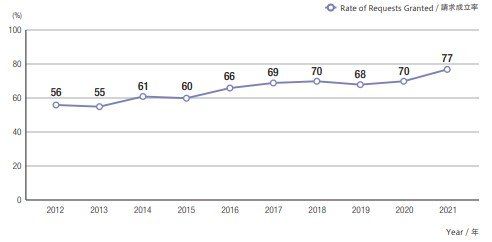
JPO - Gold-standard examinations
We encourage readers to take a leisurely look at the report for insights into the progress being made towards achieving the JPO’s objective of establishing the Japanese IP system as the international gold-standard for competitiveness and quality, in collaboration with other major IP offices.
* Includes Japan as one of the designated countries and for which documents to enter the national phase were submitted to the JPO

